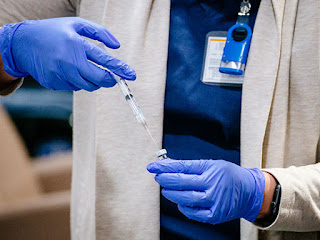Remote Inflammatory Preconditioning Alleviates Lipopolysaccharide-Induced Acute Lung Injury via Inhibition of Intrinsic Apoptosis in Rats
Acute lung injury (ALI) always leads to severe inflammation. Since inflammation and oxidative stress are the common pathological basis for endotoxin-induced inflammatory injury and ischemic reperfusion injury (IRI), we speculate that remote ischemic preconditioning (RIPC) may be protective for ALI when used as inflammatory preconditioning. remote (RInPC). Method. A total of 21 SpragueDawley rats were used for the animal experiments. Eighteen rats were evenly and randomly divided into the control group (NS injection), LPS (LPS injection) and the RInPC group. RInPC was performed by tourniquet blocking of blood flow to the right hind paw prior to LPS injection and comprised three 5-minute binding cycles followed by 5-minute loosening. The animals were sacrificed 24 hours later. There were 2 rats in the LPS group and 1 in the RInPC group that died before the end of the experiment. Complementary experiments were performed on the LPS and RInPC groups to ensure that 6 animals in each group reached the end of the experiment. Results. In the present study we demonstrate that RInPC significantly attenuates LPS-induced ALI in rats. Apoptotic cells were significantly reduced by RInPC, while at the same time apoptosis-related proteins were enhanced. The reduction of MPO and MDA and the increase of SOD activity were significantly improved with the RInPC. The increase in TNFα, IL1β and IL6 induced by LPS was inhibited, while IL10 was significantly increased by RInPC compared to the LPS group. Diploma. RInPC could inhibit inflammation and buffer oxidative stress, thus reducing intrinsic apoptosis and Acute lung injury (ALI) is a life-threatening parenchymal lung disease caused by several pathogenic factors. APL is characterized by hypoxemia, damage to blood and lung gas barriers, bilateral inflammatory lung infiltration, and non-cardiogenic interstitial edema. It often develops into acute respiratory distress syndrome (ARDS) and requires mechanical ventilation. Uncontrolled inflammation is the leading cause of death with a mortality rate greater than 30%. At present, the treatment of ALI / ARDS is mainly supportive and new therapeutic strategies are urgently needed.




Comments
Post a Comment